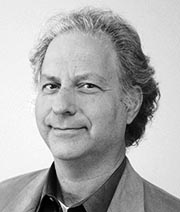Rubric Lecture Series: Are Learned Features Enough for Robust DNNs? A Question of Nature vs. Nurture
 Nelson Morgan
Nelson Morgan
ICSI
Thursday, May 28, 2015
4:00 p.m., ICSI Lecture Hall
Increasingly, experimental results in areas like vision or speech processing often indicate that feature extraction now requires less human design, since it can be “Nurtured” from training data. Nevertheless, most of these results have emerged from studies in which the signal to be classified is similar in nature to the signal with which the system had been trained. In contrast, speech processing in most operational environments will need to cope with many unanticipated types of novel input such as noise, reverberation, unexpected speaker characteristics (e.g., rate or accent), etc. An alternative view is that using signal-related knowledge (“Nature”) can be instrumental in improving generalization to unanticipated deviations from what was seen in training, a phenomenon that is often observed with real world signals and tasks.
In this talk, I will review some recent results that suggest the alternative view, and also will briefly show how we are trying to learn lessons from human neurophysiological measurements as we design speech systems to operate in realistic environments.
Bio:
Nelson Morgan is a speech researcher and the former director of ICSI as well as a professor in residence emeritus at UC Berkeley. He led the speech research effort at ICSI from 1988 through 2012 and has been working in speech processing since 1980. With Hervé Bourlard, he was an originator of the "hybrid system" approach to speech recognition (neural networks used probabilistically with HMMs), and with Hynek Hermansky was the co-inventor of signal processing techniques that were used in millions of cell phones.

